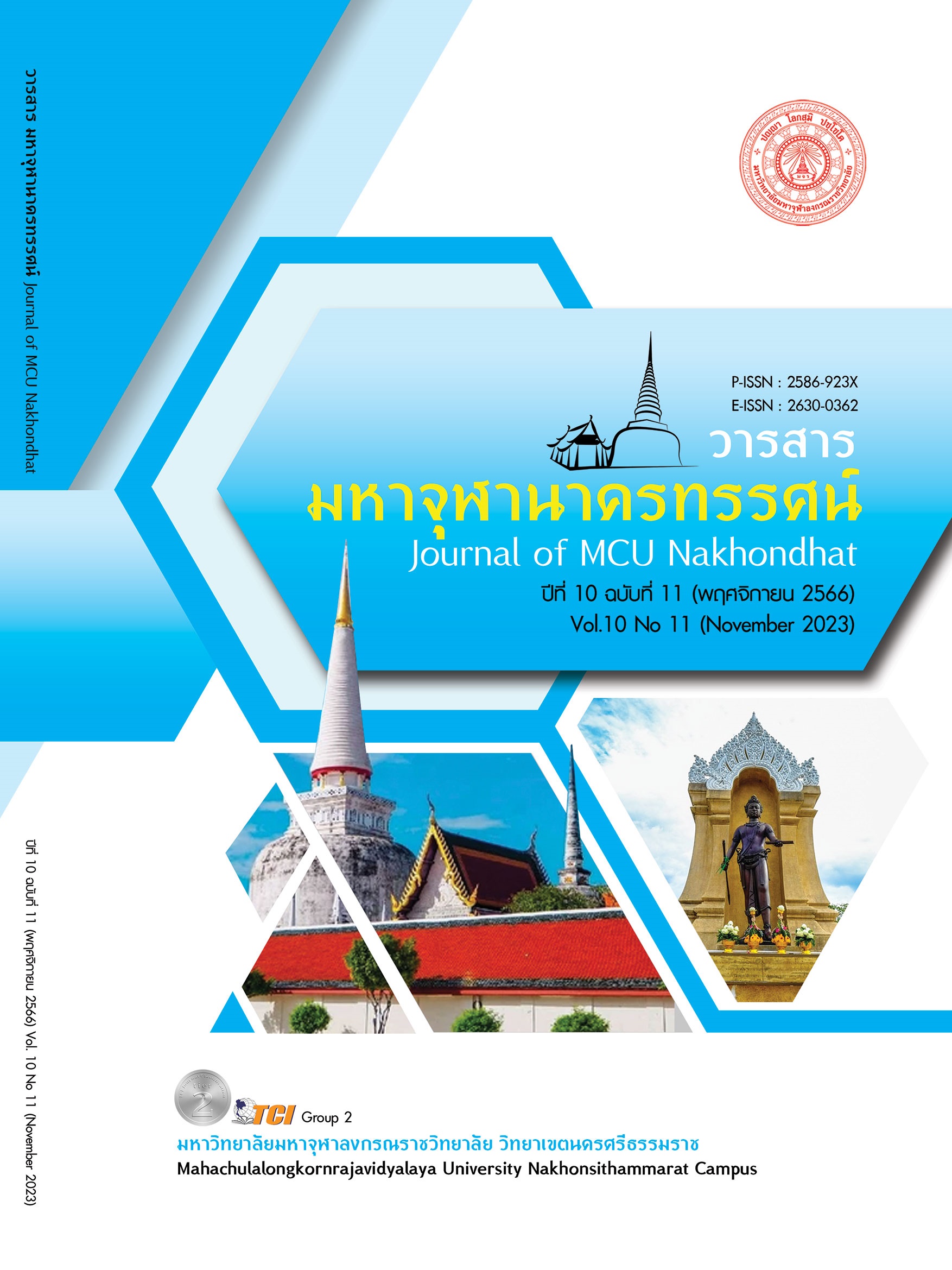OBSCURATION OF THE INTRINSIC NATURE OF THE SELF: KARMIC BONDAGE IN JAINA’S PERSPECTIVE
Main Article Content
Abstract
This academic article aims to study the intrinsic nature of the self and to study obscuration of the intrinsic nature of the self associated with karmic bondage in Jaina’s perspective. According to Jains, all souls are intrinsically pure in their inherent and ideal state, possessing the qualities of infinite knowledge, infinite perception, infinite bliss and infinite energy. They are also unbound, untouched by karmic matter, undifferentiated, and throughout its transmigration it remains unaltered. However, since beginningless time, in contemporary experience, these qualities are found to be defiled and obstructed, on account of the bondage of these souls with karma resulting from the corruption of its consciousness by false belief, ignorance and mental dispositions. Jains believe that karma is a physical substance that is everywhere in the universe. Karma particles are attracted to Jiva by the actions of that soul. Karma particles are attracted when we do, think, or say things, when we kill something, when we lie, when we steal and so on. Karma not only encompasses the causality of transmigration, but is also conceived of as an extremely subtle matter, which infiltrates the soul-obscuring its natural, transparent and pure qualities. Karma is thought of as a kind of pollution, that taints the soul with various colours, based on its kind of karma. Jiva will be liberation and restoration true nature of the self only by stoppage influx of Karma to space-point of it.
Article Details

This work is licensed under a Creative Commons Attribution-NonCommercial-NoDerivatives 4.0 International License.
References
เอ็ม หิริยันนะ. (2520). ปรัชญาอินเดียสังเขป. กรุงเทพมหานคร: ไทยวัฒนาพานิช.
Chakravarti, A. N. (2001). Acarya Kundakunda’s Samayasara. ed. and trans. Englishtrans. and commentary based on Atmacandra’s Atmakhyati, 5 th. ed. New Delhi: Bharatiya Jnanapith.
Dundas, P. (2002). The Jains. 2 nd ed. London, New York: Routledge.
Eckel, M. D. (2009). Bhaviveka and His Buddhist Opponents: Chapters Four and Five of the verses on the Heart of the Middle Way (Madhyamakahrydayakarika) with commentary entitled The Flame of Reason (Tarkajvala) (Harvard Oriental Series). Boston: Harvard University Press.
Jacobi, H. (1973). “Suyagadanga - suttam” as “The Sutrakrtanga Sutra”. Jaina Sutras. Part 2, (Sacred Books of the East, Vol. 45). Delhi: Trans and introduction.
Jain, M. K. (2001). ed. and trans. Tattvarthavartika of Sri Akalankadeva. Parts 1 and 2. 6th. ed. New Delhi: Bharatiya Jnanapith.
Jaini, P. S. . (2001). The Jaina Path of Purification. Delhi: Motilal Banarsidass.
Johnson, W.J. (1995). Harmless Souls: Karmic Bondage and Religious Change in Early Jainism with Special Reference to Umasvati and Kundakunda. Delhi: Motilal.
Sastri, P. (2000). Srimad - Acarya - Pujyapada-viracita: Sarvarthasiddhi (Srimad - Acaryagrddhapicchapranitasya Tattvarthasutrasya-vrttii. ed. and trans. 10th ed. New Delhi: Bharatiya Jnanapitha.
Schubring, W. (1932). “Dasaveyaliya Sutta”. Kleine Schriften trans. E. Bijnor. Leumann (ed.). Bijnor: Jaina Parisad Publishing House.
Tatia, N. (1994). Tattvarthasutra: That Which Is, A Classic Jain Manual forUnderstanding the True Nature of Reality. Umasvati/Umasvami. with Combined Commentaries of Umasvati/Umasvami Pujyapada and Siddhasenagani. trans. And introduction. San Francisco: Harper Collins.


